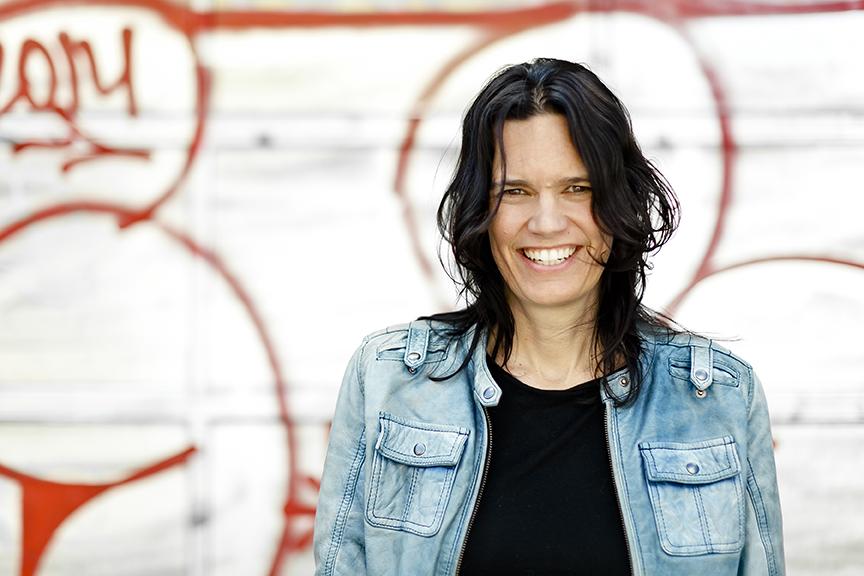Writer, musician and scholar Leanne Betasamosake Simpson will present “Freedom Sings: Indigenous Land, Bodies and Resurgence” in a keynote speech and workshop Thursday, Oct. 29, for the college Institute for Global Engagement’s Year of First Nations.
Simpson’s virtual keynote speech will take place at 11:20 a.m. on Oct. 29, with an afternoon workshop that day running from 2:40 to 4 p.m.
Using Nishnaabe storytelling, theory and aesthetics, Simpson’s presentation explores the themes of relationality, reciprocity, resistance and resurgence.
With excerpts from her books, “As We Have Always Done,” “The Gift is In the Making” and “This Accident of Being Lost,” Simpson uses the practice of making maple syrup to immerse audiences in a contemporary Nishnaabe world that rejects colonialism, white supremacy and heteropatriarchy and collectively works towards building an alternative.
The presentation ends with a screening of the short stop-motion animated film “Biidaaban,” a collaborative work between Simpson and Métis filmmaker Amanda Strong.
Focus on First Nations
“The Institute for Global Engagement's ‘Year Of’ series traditionally focuses on a specific country,” said IGE director Ulises Mejias. “However, we decided to devote two years not to a nation, but to the indigenous peoples of the world, the founders of the very First Nations. We hope to learn from them, and with them, a different kind of ‘global engagement.’"
The Year(s) of First Nations activities will run from 2020 to 2022, and is a collaboration with various groups on campus, including ALANA, Artswego, Hart Hall Global Awareness Conference, Oswego Reading Initiative (ORI), the Office of International Education and Programs, and the Office of the Provost. Evelyn Clark Benavides (IGE Fellow), Lisa Seppi and Michael Chaness deserve additional thanks, Mejias said.
“We had a fantastic opening event with Tommy Orange, author of ‘There There’ (organized by ORI). And in November, we will have other important events during the Global Awareness Conference, organized by Hart Hall,” said Mejias, who is a member of the communication studies faculty.
“But this keynote by Leanne Betasamosake Simpson is particularly important for setting the tone for the next two years,” Mejias added. “Dr. Simpson is a renowned scholar, writer and artist, and one of the most compelling Indigenous voices of her generation. Her work combines decolonial politics with incredibly rich poetry, storytelling and music. We are fortunate that she will be visiting our campus virtually.”
Mejias noted that, at a time when many classes have gone remote, and the campus feels more virtual than ever, that the physical lakeside campus still sits on a piece of land that once belonged to other people.
“The dispossession that native peoples have experienced across the world is something we need to come to terms with,” Mejias said. “That is why Oswego's Faculty Assembly recently voted to pass a Land Acknowledgement statement, which should be read whenever possible, and which should be used to start conversations with our students about these issues.”
The Faculty Assembly statement reads:
The State University of New York at Oswego would like to recognize with respect the Onondaga Nation, the “people of the hills”, or central firekeepers of the Haudenosaunee Confederacy, the Indigenous peoples on whose ancestral lands SUNY Oswego now stands. Please join me in acknowledging the Mohawk, Oneida, Onondaga, Cayuga, Seneca, and Tuscarora Nations, their elders both past and present, as well as the future seven generations yet to come. Consistent with the University’s values of diversity and equity, inclusion and social justice this acknowledgement demonstrates a commitment to cultivating relationships with Native American communities through academic collaborations, partnerships, historical recognitions, and community service in order to dismantle the legacies of conquest and colonization.
Visit this Zoom link for the keynote speech and workshop.
For more information on the Institute for Global Engagement or the Year of First Nations plans, visit the IGE website.




